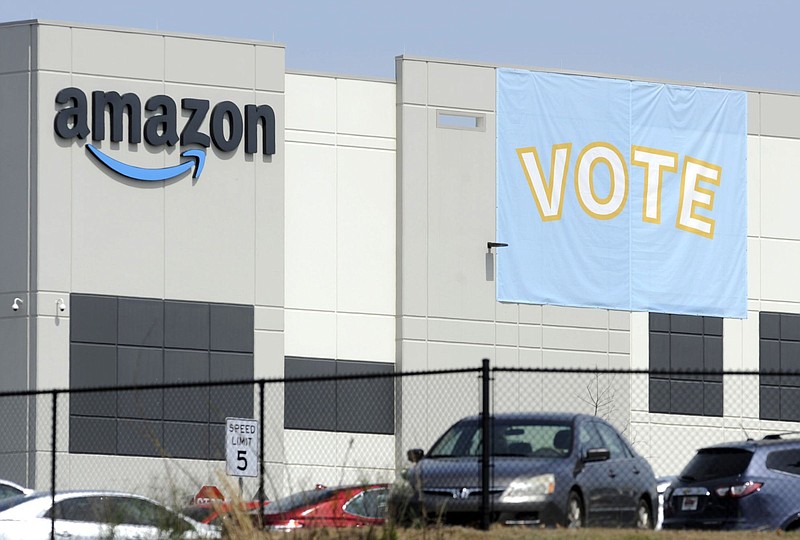Courtenay Brown works in a giant refrigerated section of the Avenel, N.J., Amazon Fresh warehouse, sometimes 10 hours a day, making sure groceries find their way to the right delivery truck.
Brown, 31, said she is measured by a metric that calculates the amount of items her team loads to trucks along with the number of people working that shift. Amazon, which keeps tabs on workers through the hand-held scanners they use to track inventory, regularly presses her to move more items with fewer people, she said. There are cameras everywhere.
"They basically can see everything you do, and it's all to their benefit," Brown said. "They don't value you as a human being. It's demeaning."
That sentiment, that Amazon's culture of surveillance constitutes inhuman working conditions, has become fuel for unionization efforts to organize hundreds of thousands of workers at the country's second-largest private employer. Union organizers who spoke with The Washington Post pointed to strict productivity goals and high-tech monitoring as major factors in driving employees to seek representation.
The tech giant uses those scanners, along with computers at workstations and software developed to track their performance, to a degree that critics say is unlike any other company. High-tech monitoring presses warehouse staff to meet onerous metrics and can lead to injuries, workers and regulators have said.
(Amazon founder Jeff Bezos owns The Post.)
Workers behind the union efforts have focused significant energy countering the company's tracking -- something they also say stymies their efforts to organize.
Amazon's surveillance of its workers even played a role in the decision by a National Labor Relations Board official to call for a new union vote at its Bessemer, Ala., warehouse Monday, finding that the company improperly interfered in the first election. Workers earlier this year rejected unionization by more than 2-to-1 in one of the first major bids to organize at Amazon in years.
In her ruling, the the board's Atlanta regional director, Lisa Henderson, wrote that Amazon's efforts to place an unmarked U.S. Postal Service mailbox in "plain view" of Amazon's security cameras "essentially highjacked the process." Employees "credibly" testified that they believed cameras were watching them everywhere -- even in the parking lot, she wrote.
Amazon spokeswoman Kelly Nantel said employee monitoring, via data collected by scanning devices as well as cameras situated through its warehouses, are prudent business measures.
"Like any business, we use technology to maintain a level of security within our operations to help keep our employees, buildings, and inventory safe -- it would be irresponsible if we didn't do so," Nantel said in an emailed statement. "It's also important to note that while the technology helps keep our employees safe, it also allows them to be more efficient in their jobs."
When workers scan items into warehouses, they trigger an algorithm-driven employee performance system, which tracks where products are located along with the speed that workers are doing their jobs. Managers have visibility into the software -- dubbed the Associate Development and Performance Tracker, or Adapt -- to review employee performance, Nantel said. Amazon also has systems that measure workers' "time off task," those moments when employees log off their devices -- turning off their scanners or stepping away from their computers -- to take a restroom break or grab lunch.
Amazon already heavily effects the way Americans shop, read and even interact with voice assistants. Now, union organizers are concerned that the tech giant is set to have the same effect on the millions of workers employed at all types of warehouses around the country. Amazon deploys new practices that often influence industry standards. That is, in part, why organizers are pushing back so hard against the tracking.
"What this fight is about is the future of work and whether we want Amazon's version of it," said Stuart Appelbaum, president of the Retail Wholesale and Department Store Union that led the Bessemer organizing drive, the first major unionization attempt in years at an Amazon warehouse.

